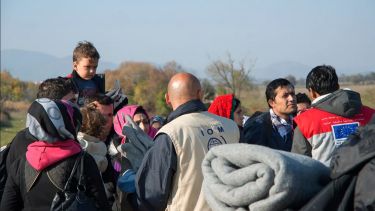Around the world, a growing number of people are subjected to criminal measures for helping irregular migrants, including those who are seeking asylum. Acts as simple as leaving water in the desert, saving someone from drowning in the sea, giving someone a lift to a medical facility, or a bed for the night, lead those offering such assistance open to arrest and imprisonment. While activists keep records of arrests in different countries, and there has been a lot of research in Europe on the criminalisation of solidarity activities, we currently have little understanding of this as a global phenomenon. The Crimes of Solidarity and Humanitarianism database aims to build understanding of criminalisation across borders for research and resistance.
Research indicates that there is no typical offender profile. Internationally, people of all immigration and citizenship statuses, ages, and a wide range of occupations from nuns to farmers to university academics have been subject to these measures. A range of laws are deployed to criminalise solidarity and humanitarian activities. These include laws against facilitating entry (smuggling) and stay, but also anti-terror, anti-organised crime, anti-protest, and anti-NGO legislation; holding dangerous weapons, endangering maritime and airport security, driving an unsafe vessel, espionage, criminal association and membership of a criminal network or gang. All of these laws are deployed to stop people from helping others.
To find out more visit the website.

